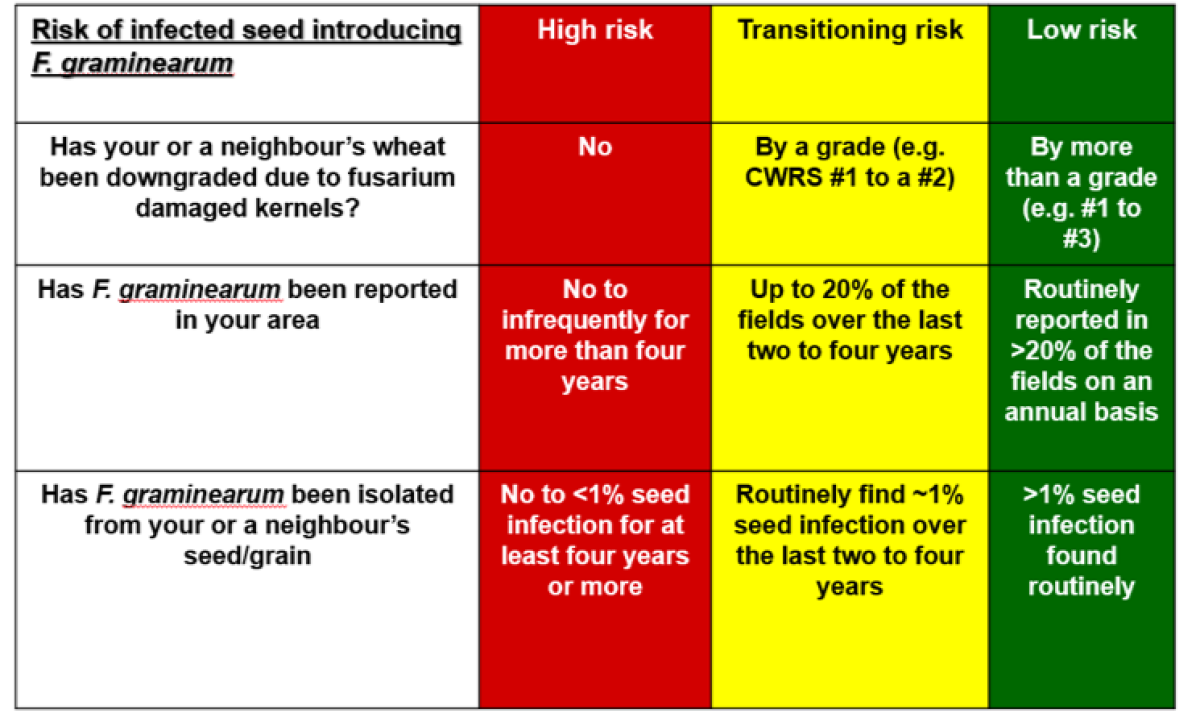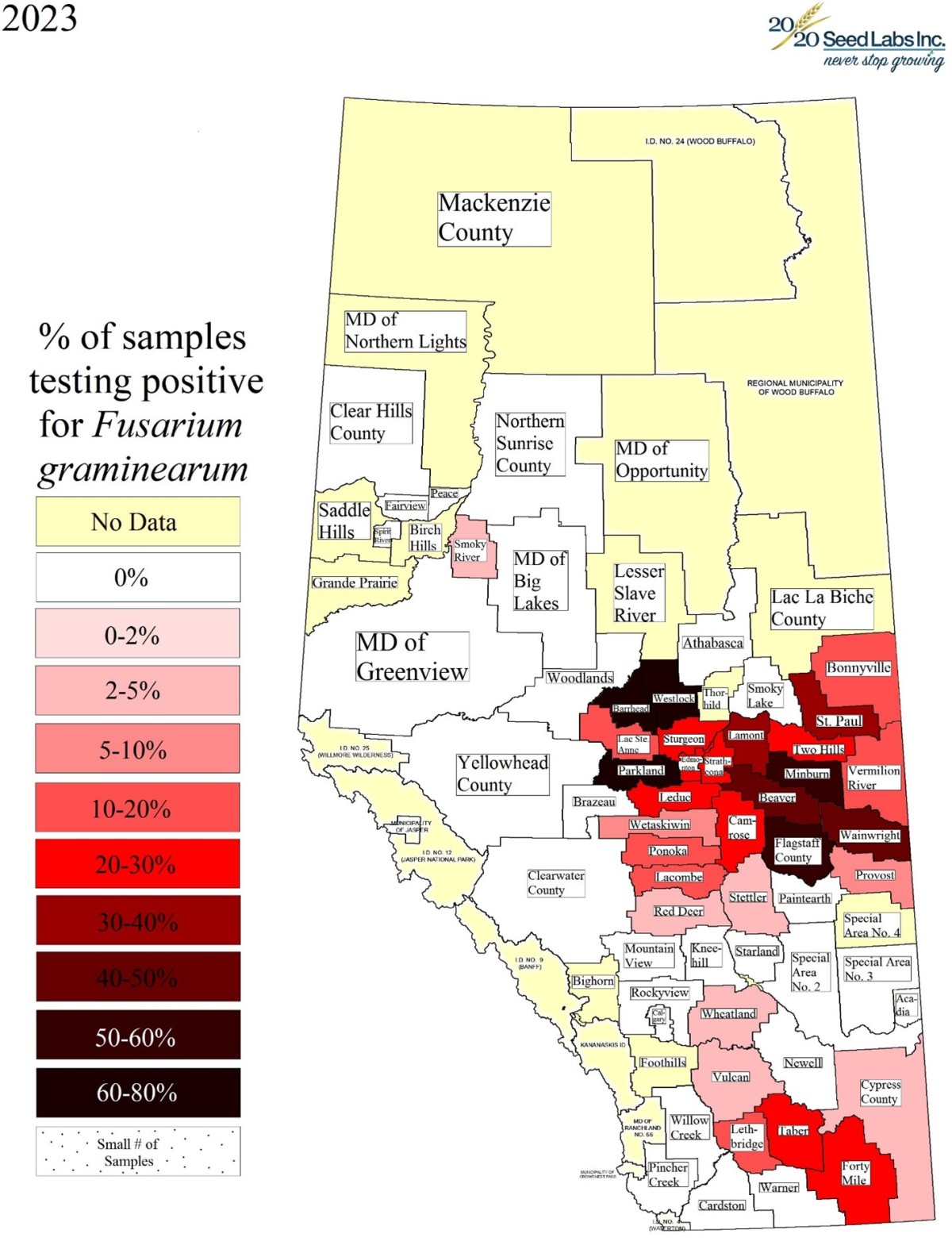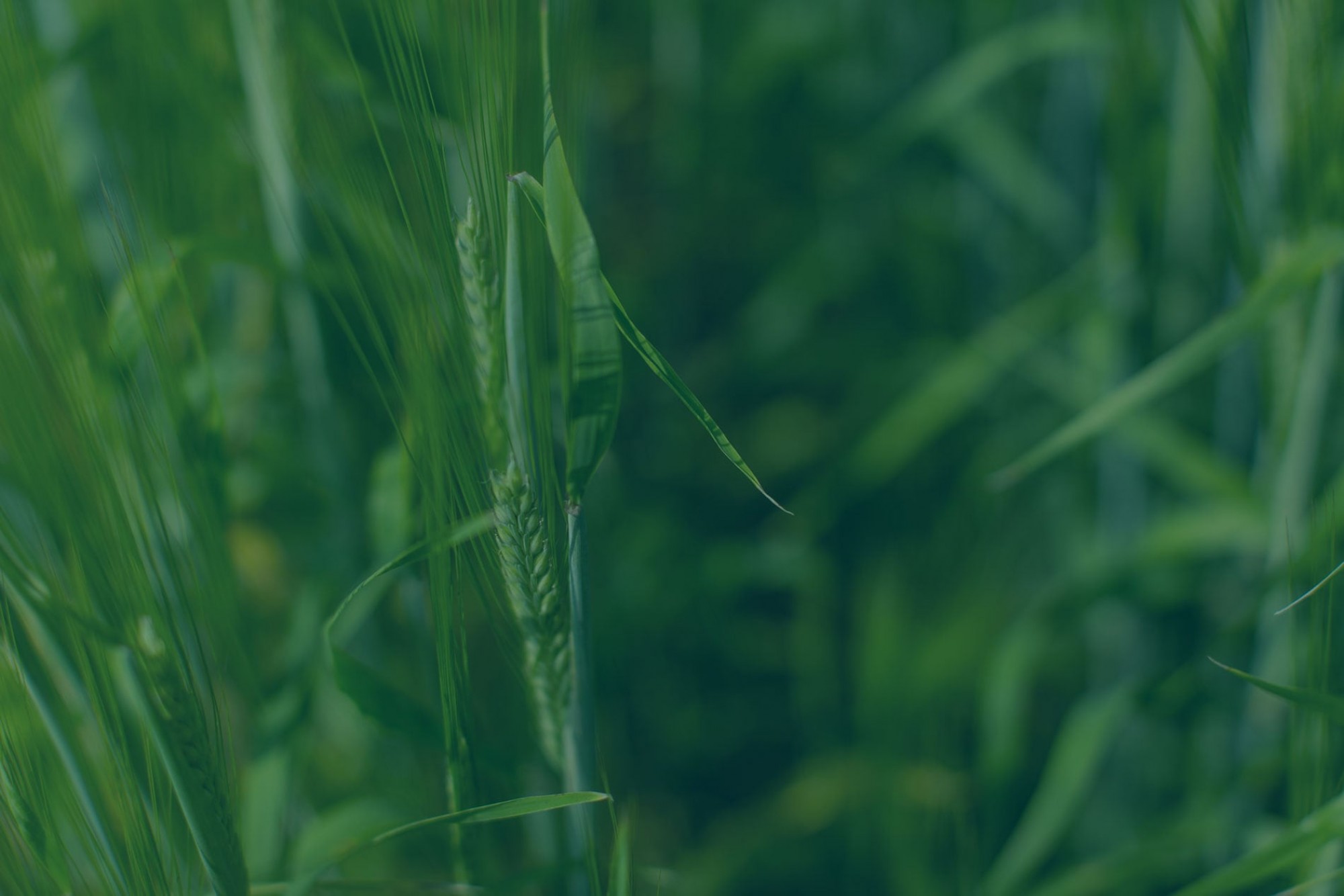What can growers do when they cannot find Fusarium graminearum free seed for planting?
Due to higher occurrence of Fusarium seed infection in certain regions of Alberta, some farmers might face challenges finding Fg-free seed to plant in 2024. What are the best management practices in this case? The following are the factors to consider before making this decision.
1) Which region are you farming in?
When Fg is not present or isn’t routinely found in the region, the risks of introducing Fg through infected seed is high. Using clean, Fg-free seed is especially important in this case.
Conversely, if Fg is already well established in the region, the risks of introducing Fg through infected seed is lower. The focus shifts into actively managing Fg that is present.

Figure 1. Photo courtesy: Dr. Kelly Turkington, AAFC Lacombe

Figure 2. Photo courtesy: 20/20 Seed Labs. Note that the map serves as a reference. Please consider the conditions at individual farms when making decisions on seed sources.
2) What is the germination rate of seeds?
Send the seed lot to an accredited seed lab to test for germination. If the germination rate is 95% or higher, then consider using the seed. However, if the germination is well below 90% and the level of Fg infection is high, consider using a different seed lot. The seed lot is likely to have seed germination and seedling emergence issues event when seed treatment is used. Seed treatment may not be enough to bring the germination back to >90%.
3) Cleaning seed
Cleaning seed helps reduce Fg-infected seed, but it only helps when FHB infection occurs early and FDK is present. If Fg infection happens later in the kernel developmental stage, visual symptoms may be minimal, but the seed still carries Fg. For this reason, seed cleaning should be used in combination with other management measures.
4) Seed treatment
Using a seed treatment effective against Fg helps increase plant stand and reduce risks. The efficacy of seed treatments is impacted by the active ingredients, severity of seed infection and environmental conditions. Consult with local agronomists when choosing seed treatment products.
For more information on how to make decisions around Fg infected seeds, click here.

